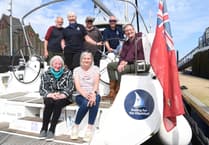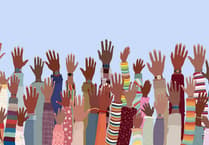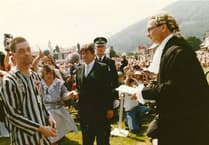The irony for those of us who don’t suffer a visual impairment is that we don’t see how public spaces could be made to be a lot more accessible for those who do. Though the island is more accessible than it’s ever been, there’s still work to be done. But that’s not the only area where progressive steps are needed. The perception of people with visual impairments is long overdue an update. Sight Matters is the only charity set up in the island to support people who are blind or visually impaired. They currently provide services for more than 700 people and are seeing an increasing number of referrals. We had the pleasure of asking them a few questions to find out more.
What services do you offer to the community?
Sight Matters is the trading name of Manx Blind Welfare Society, which was formed in 1936 and established on statue in 1937 when Tynwald passed The Blind Persons Welfare Act. The Society is based at Corrin Court in Onchan, a purpose-built fully accessible facility with extensive grounds. It includes the Freedom Field, which is designed first and foremost as a safe, secure space for the blind and visually impaired along with assistance dogs. It also extends its reach to include those with hidden disabilities or other challenges. The Freedom Field includes the Freedom Run; a secure space for assistance dogs to run free and the Sanctuary, which is a tranquil, sensory area.
Sight Matters is independently funded, relying on the kindness and generosity of the public to support the delivery of our many and extensive services, which, apart from a subsidised lunch club, are all free at the point of delivery, something we are rightly proud of.
We provide services for more than 700 members, which include:
- Assistive technology, including the adaptation of mainstream devices such as laptops and iPads, electronic readers, and specialist software.
- Independent living aids which are many and varied, from audio liquid level indicators to talking air fryers.
- An extensive audio library accessed on specially designed players for the blind and visually impaired.
- A weekly talking news service.
- A Younger Members group for up to 18s which runs different activities from cookery classes to different outdoor activities.
- Activities and events for the over 18s from craft classes to theatre trips and anything in between.
- A subsidised weekly lunch club offering a three-course home cooked lunch and entertainment/activity included.
- An outreach service for those that cannot access our other services.
- An acoustic shooting club which includes a number of national medal winners.
- A newly formed amateur radio club.
- A walking group.
- The delivery of visual impairment awareness training to businesses, community groups and other professionals.
In addition to a small team of dedicated staff, we have around 200 volunteers assisting with the delivery of our services. Several of our members also volunteer with us.
How have you seen the organisation develop over time?
Sight Matters is a dynamic organisation, always looking at new ways to do things or expand the services we offer. We’ve opened up the eligibility criteria to access our services to include those who are sight impaired, not just blind. We’ve also started the successful acoustic shooting club, introduced the Younger Members group, extended the Younger Members group to include children with complex needs, developed a transition programme from the Younger Members group to the over 18s activities, expanded the activities offered to over 18s and just launched an amateur radio club. Technology, which is ever changing and developing, plays an important part in helping the blind and visually impaired live safe, independent lives so we make sure we keep abreast of what may be available and could support our members.
We’ve seen an increasing number of referrals and an increasing number of children being referred in. We welcome these referrals as it means those who need our services are accessing them.
What aspirations do you have for the future of the charity?
Our aspirations for the charity are to raise our profile so those who may need our services are able to access them. And we aim to continue delivering and expanding what we do.
Do you think the Isle of Man is accessible enough for those with visual impairments?
The island is more accessible than it has ever been, and we are consulted by statutory, third sector and private businesses to see how they can continue making their services more accessible. However, there’s still much more to be done and sensory impairments, including sight loss, are often an overlooked disability. The current symbol for disability doesn’t help as it infers to be disabled is to have a physical and seen disability. The perception of accessibility is often limited to physical accessibility but for the blind and visually impaired digital and online accessibility can often be overlooked, which in a world that is becoming increasingly digitised, means those with such impairments can be excluded. For example; an automated phone system can be a real challenge to not only make the initial call but then followed by a suite of push number options.
What are some key improvements in public spaces you would make?
We recognise it’s challenging to make public spaces accessible to all disabilities but there are some simple considerations that can help. These include tapping rails at the base of potential obstructions, having contrasting colours to identify kerbs or edges, and making sure certain street furniture doesn’t cause obstructions.
Do you believe the representation of people with visual impairments is accurate? If not, how does that perception need to change?
There’s a perception that to be blind means having no sight at all, but this is not the case. There’s also a perception that blind people use white canes or have a guide dog. Again, this is not the case. Another common perception is that those who are blind or visually impaired are restricted with activities they can take part in. This is often due to concerns sighted people have about perceived risk. There are some obvious activities that cannot be undertaken, such as driving, but often with support and adaptations, the blind and visually impaired can take part in a wide and varied range of activities.
For more information and to get in touch, visit sightmatters.im




